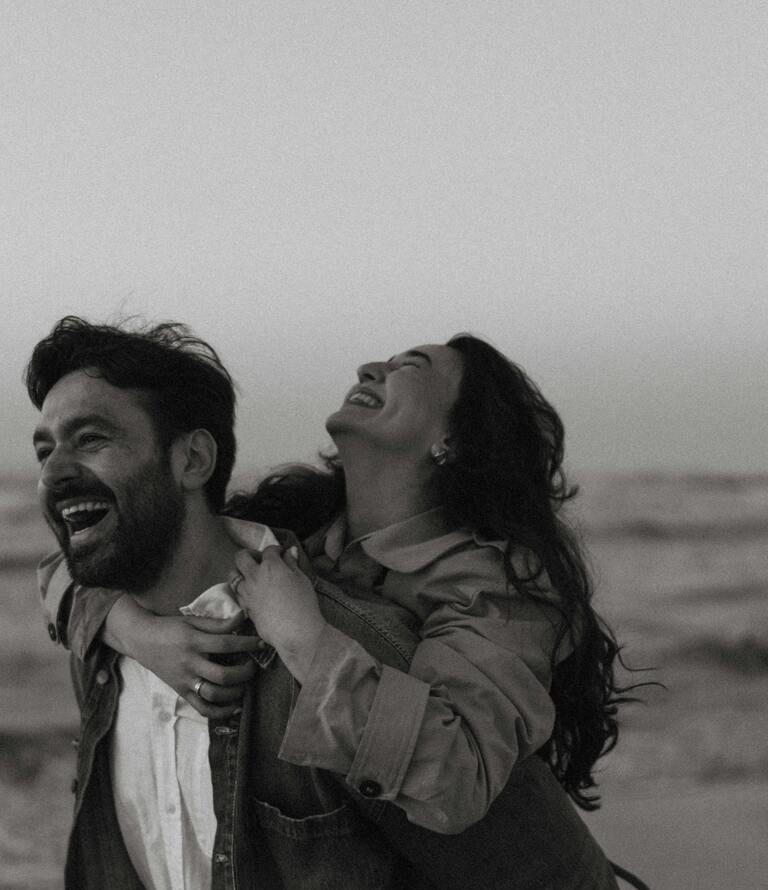Navigating feelings in a relationship can be confusing, especially when love starts to feel like something darker.
Sometimes, what seems like love is actually a trauma bond – an unhealthy attachment rooted in pain, chaos, and fear.
Understanding the difference can be a game-changer for your heart and mental health.
We’re going to break down 9 key differences between genuine love and a relationship rooted in trauma, as well as tips to protect yourself from falling into unhealthy patterns.
Recognizing these signs can help you make smarter choices and find relationships that truly nourish your soul.
1. Love Is Based on Respect, Trauma Bond on Control

Real love makes mutual respect come effortlessly. Both people care about each other’s well-being and boundaries.
Se trata de kindness, trust, y igualdad.
A trauma bond, on the other hand, thrives on control, manipulation, and power struggles.
The person might guilt-trip or emotionally manipulate you to stay close, even when you’d both be better off alone.
If your relationship feels like a constant tug-of-war and fight for dominance, it’s probably not love.
Instead, it’s a toxic dynamic that keeps you hooked through fear and confusion, not genuine care.
2. Love Grows in Calm, Trauma Bond in Chaos

Healthy love tends to grow in calm, supportive environments. Think shared laughter, gentle conversations, and mutual encouragement.
Trauma bonds often develop in chaotic or intense situations – crisis, abuse, or emotional upheaval.
En montaña rusa emocional becomes addictive because your brain craves the high of relief when things temporarily get better.
That cycle of ups and downs keeps you hooked, and you come to mistake chaos for passion.
If your relationship is mostly unpredictable, with frequent emotional storms, it might be rooted in trauma rather than true love.
3. Love Encourages Independence, Trauma Bond Foster Dependence

In real love, both partners maintain their independence. They support each other’s crecimiento personal y respect boundaries.
Trauma bonds often trap you in emotional dependence. You feel like you can’t breathe without the other person, and leaving seems impossible.
The manipulative partner might isolate you from friends or family, forcing you to rely solely on them.
If you find yourself feeling powerless or overly dependent, it’s a red flag.
Healthy love empowers, while trauma relationships trap you in a cycle of attachment that’s rooted in fear and insecurity.
4. Love Is Consistent, Trauma Bond Feels Unpredictable

Consistency is a hallmark of healthy love. Your partner shows up, keeps promises, and makes you feel secure.
Trauma bonds are marked by unpredictability: hot and cold behavior, sudden anger, or emotional withdrawal.
This inconsistency keeps you guessing and chasing after fleeting moments of affection.
The unpredictability feeds the addiction to the highs, making it harder to distinguish love from a toxic pattern.
If your partner’s behavior swings wildly, your connection is likely rooted in trauma.
True love offers a steady, reliable presence, not a rollercoaster of feelings.
5. Love Is About Mutual Giving, Trauma Is About Taking

Healthy relationships are built on giving and receiving. Both partners contribute, listen, and support each other.
Trauma bonds often revolve around one person taking more than they give, often using manipulation and control.
You might find yourself constantly trying to fix them o prove your worth. This imbalance is exhausting and unhealthy.
If you’re feeling drained, or like you’re always giving while your partner takes, it’s a sign that it’s not true love.
Genuine love is reciprocal; both people nurture and uplift each other, not drain each other emotionally or physically.
6. Trauma Bond Comes From Repeated Crisis

Trauma bonds usually form after episodes of abuse, neglect, o emotional upheaval.
The cycle of pain, apology, and reconciliation creates a powerful attachment. Your brain gets hooked on the emotional high of relief and hope.
Over time, this pattern becomes addictive, leading you to stay despite the pain.
It’s like an emotional rolleroaster that you can’t step off, because your brain confuses the pain with love.
Recognizing that trauma is the seed of these relationships can help you break free.
Healthy love doesn’t thrive on pain; it’s built on safety and consistency.
7. The Importance of Trusting Your Gut

The easiest way to tell if it’s love or just trauma bonding is by listening to your gut.
Do you feel safe, respected, and valued most of the time? Or do you often feel anxious, fearful, o confuso?
Ask yourself if your partner lifts you up or tears you down.
¿Te sientes free to be yourself? Do you look forward to your future together, or do you dread it?
Genuine love feels like a steady flame – warm and bright – while a relationship rooted in trauma flickers like a fire in a storm.
It’s best to trust your instincts. If something feels off, it most likely is.
8. How to Protect Yourself

Prevention is key when it comes to trauma bonds. Start by setting clear boundaries; know what’s acceptable and what isn’t.
No matter how much you’re attracted to someone, do not ignore red flags like manipulation, gaslighting, or emotional abuse.
Focus on nurturing your self-esteem and independence outside the relationship. Spend time with friends, pursue hobbies, and reflect on your needs.
Educate yourself about healthy relationships, so you’ll know what to look for.
Healthy love feels safe and good most of the time – it’s not about survival or constant drama.
Protecting your heart means prioritizing your well-being and never settling for anything less than respect and kindness.
9. Seek Help and Trust Yourself

If you’re unsure whether you’re in love or stuck in a trauma bond, reach out for help.
Talk to trusted friends, family, or a mental health profesional. They can give you perspective.
Recognizing unhealthy patterns takes courage, but it’s worth it. Your feelings are valid, and you deserve a relationship rooted in genuine love, not pain or control.
Trust yourself to make the right choices – your heart knows when something feels wrong. Healing starts with sensibilización.
With support, you can break free from toxic connections and find a love that truly respects, values, and nurtures you.
A little Aquarius, devoted to writing and embroidery. Through my writing, I hope to empower readers to align with their true selves and navigate life’s mysteries with confidence.

